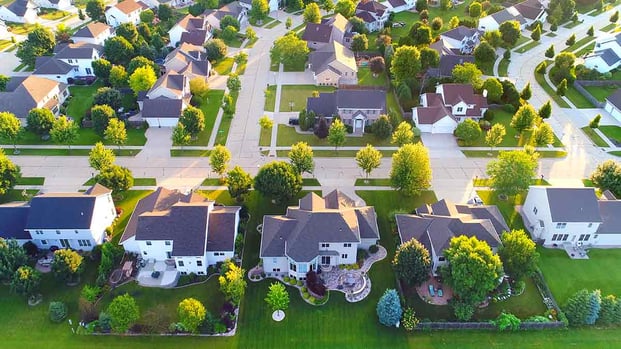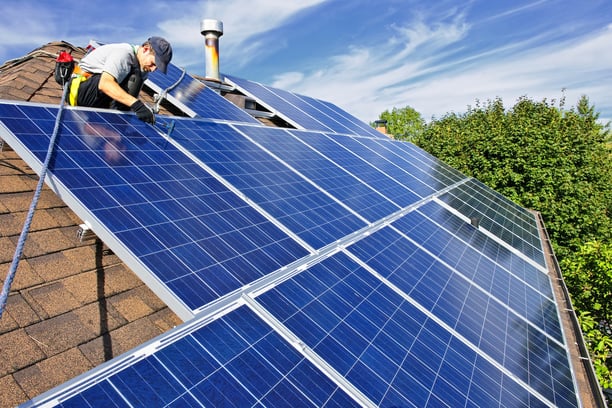Homeowners gravitate to solar panel systems for numerous reasons, including lower electric bills, effective investments, environmental concerns, or simply keeping up-to-date with the latest home trends. No matter your reason, the first thing you should think about are the different factors that render your roof eligible or ineligible for solar panels.
One of the key determinants to consider is the condition of your roof. Let’s take a look at what makes a roof best suited for solar panel installation:
Best Roof Types & Materials
Solar panels can generally be installed on nearly all types of roofing materials. However, some materials are more compatible with solar than others, such as:
- Composite: As the most common kind of roof, a composite roof is highly compatible with solar panels.
- Metal Standing Seam: With standing seams, installing solar panels won’t require drilling holes in the roof.
- Asphalt: Solar panels can operate on asphalt roofs comfortably, without the threat of additional damage.

Current Roof Lifespan
Depending on the age of your roof, it may be better to replace it prior to installing solar panels. The functional lifespan of a roof relies heavily on regional weather conditions, construction and design, materials, and general upkeep.
Roofs in regions that endure severe weather conditions, including hail, hurricanes, or tornadoes might have a shorter lifespan resulting from sustained damage.
Roofs in areas with warm temperatures may also experience shorter lifespan due to the heat’s corrosive impact on asphalt shingles. Some common roof types and their standard lifespans are:
- Asphalt: 30 years
- Asphalt Shingles: 20 years
- Wood: 25+ years
- Concrete or Clay: 100+ years
While you can always replace your roof after you install solar panels, you will need to separate the panels and frames, renovate the roof, and then reinstall the panels, which will tack on additional costs.
Shape & Size of Roof
Installing solar panels is easiest when the roof is large and square. A standard guideline is that for each kilowatt of your solar system’s size, you will require approximately 100 square feet of roof area!
Remember, features like skylights, dormers, and turrets will also impact the amount of roof accessible. The ideal orientation is for the roof to be south-facing.
In addition to roof orientation, the dimensions of your roof will determine how many solar panels you can successfully place. The ordinary home's solar system size is 5 kilowatts. With solar panels requiring approximately 15 square feet apiece, you'll need roughly 300 square feet of roof space to place 20 solar panels on a roof.

Slope & Angle of Roof
While the slant of a roof isn't as crucial as its orientation, it can impact the solar energy production. The optimal angle for power production is approximately 30 degrees. In the Northeast, roof slopes between 15-40 degrees are considered good for solar.
Unsure whether or not your roof is suitable for a solar panel system? Check out our 7-Step Guide for Rhode Island Homeowners (video) detailing roof requirements and many other factors to consider during the assessment process, or schedule a free consultation with one of our solar specialists at BCX Energy today!







